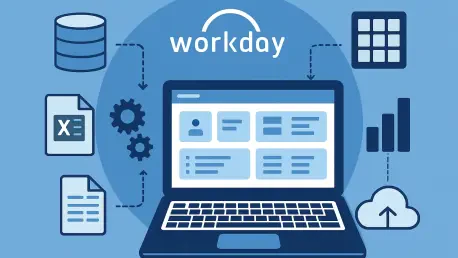In an era where seamless data flow is paramount for business success, many organizations have grappled with the frustration of integrating complex software systems into their existing infrastructures, often facing barriers that hinder efficiency and innovation. A prominent player in the software-as-a-service (SaaS) landscape, Workday, has long been recognized for its robust solutions in human capital management and financial planning. However, integration challenges have historically posed significant hurdles for its customers, limiting their ability to extract and utilize data across diverse platforms. This issue has not gone unnoticed, as the company’s leadership recently acknowledged these pain points and embarked on a transformative journey. By shifting toward a more open and accessible framework, Workday aims to address these long-standing concerns, aligning with the broader industry push for interoperability and data-driven progress in an increasingly AI-focused market.
Embracing a New Era of Data Accessibility
The shift in Workday’s strategy marks a departure from its earlier, more guarded approach to data integration, which prioritized control over flexibility. For years, the company adopted a protective stance, often described as a “walled garden,” where data extraction and third-party integrations were deliberately restricted. This was driven by concerns that external entities might leverage extracted data to build competing applications or bypass Workday’s ecosystem entirely. However, as customer feedback highlighted growing frustration with these limitations, leadership recognized the need for change. CEO Carl Eschenbacher candidly admitted that the company had been overly cautious, a stance that hindered user experience. Now, with the introduction of the Workday Data Cloud, the platform enables zero-copy integrations with major industry players like Snowflake and Databricks. This allows customers to analyze data externally without duplication, using tools like direct SQL queries to streamline processes and enhance accessibility across IT environments.
Aligning with Industry Trends for Future Growth
Looking at the broader SaaS landscape, Workday’s pivot to an open platform reflects a critical industry trend where data accessibility is no longer optional but essential for competitiveness. The rise of AI-driven solutions has underscored the importance of robust APIs and seamless data-sharing capabilities, pushing companies to abandon restrictive models. Workday’s response, through the Workday Data Cloud, not only addresses immediate customer needs but also positions the company as a forward-thinking leader in a rapidly evolving market. This strategic move facilitates deeper integrations, ensuring that users can leverage their data within diverse systems without encountering previous barriers. By embracing interoperability, Workday acknowledges that future success hinges on empowering customers with greater control over their information. This transformation, initiated in response to market demands, demonstrates a commitment to evolving alongside technological advancements, ensuring that past integration frustrations are effectively mitigated for a more collaborative user experience.









